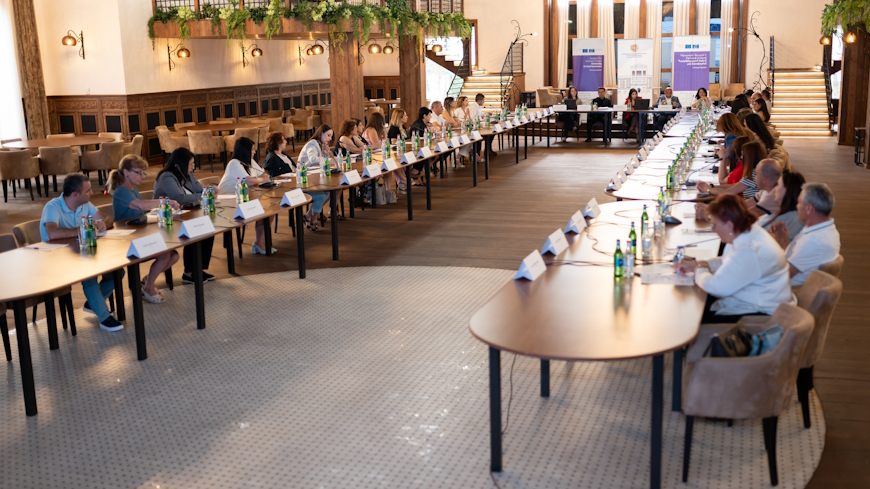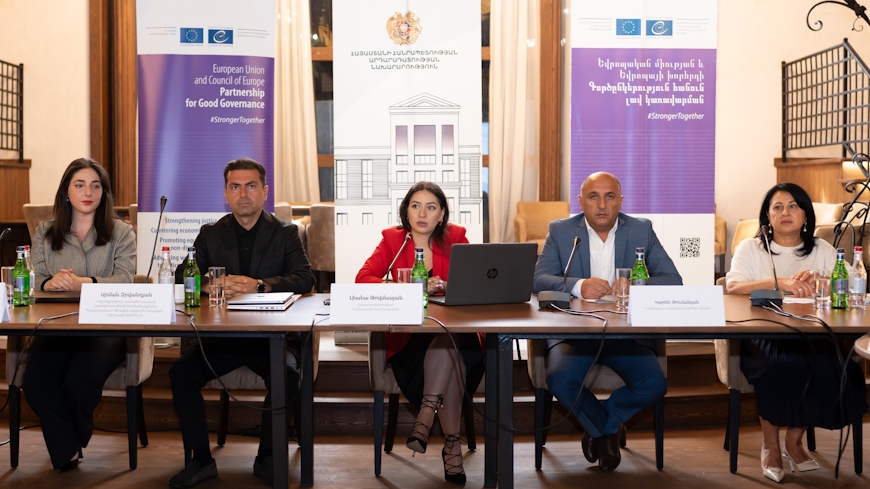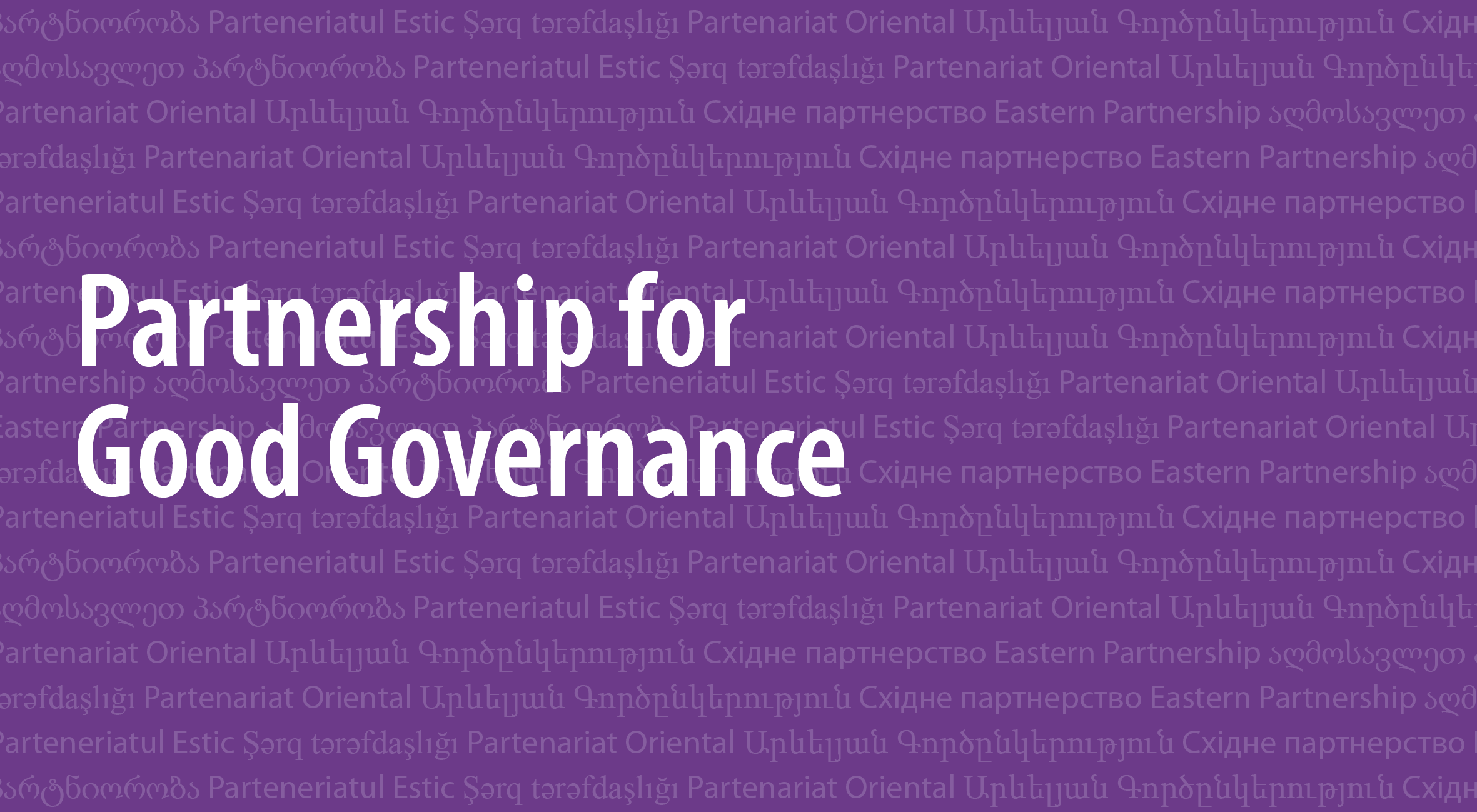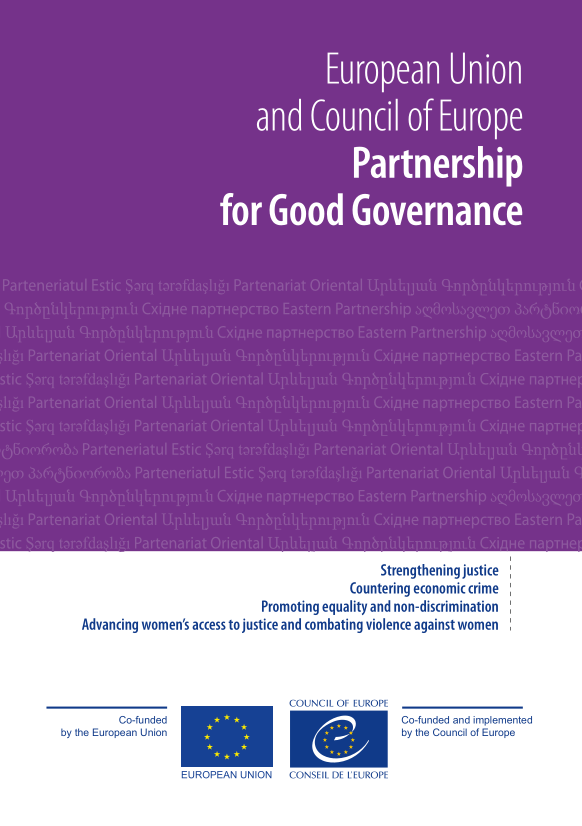In a groundbreaking effort to reduce Armenia’s court backlog/caseload—where small monetary claims previously clogged 80% of judicial schedules—newly introduced legislative amendments transferred those small claims from courts to notaries. Seven months into this new system, the series of discussions and an in-depth evaluation has brought to light key areas for improvement and marked the achievements of the reform.
The round table discussion, organised by the Ministry of Justice with support from the Council of Europe focused on discussion and evaluation of the first seven months of functioning of the new system where notaries handle small claims previously examined by ordinary civil courts. The event convened nearly 135 notaries from across Armenia, as well as judges from every judicial level, from first instance to cassation.
The workshop series aimed at bridging the gap between theory and practice, tackling the practical and legislative challenges that have surfaced during this period. Judges shared their firsthand experiences, insights, and methods of handling small claims with notaries. The format of the workshop was particularly valued by the MoJ and the participants, whereby previous decisionmakers share their experience directly with the next decisionmakers.
In his opening remarks, Mr. Arman Zrvandyan, the national program manager of the project “Support to Judicial reforms in Armenia’’, stressed the significance of this reform whereby civil courts already reduced their backlog and caseload by approximately 80%, and expressed the commitment of the Council of Europe to continue supporting such reforms in Armenia.
In total, three judge-notary workshops were carried out, which included judges from all three instances and all notaries of Armenia. The workshop series also included representatives from the Central Bank, Compulsory Enforcement Service, Supreme Judicial Council, who provided valuable positions on the small claims reform from the perspective of their own institution. The discussion format, while unprecedented, proved to be highly effective and the feedback from participants was overwhelmingly positive. Judges shared their experiences and insights directly, offering practical solutions to the problematic situations that arose during the implementation of the payment orders issues by notaries in the first seven months of 2024.
Furthermore, the events provided an effective platform for engaging discussions on significant improvements in the practical application of notarial payment orders. The workshops addressed several key issues, including challenges related to fines, notifications, time-limits, and calculations.
The format of the discussion was unprecedented but proved exceptionally effective. The participants lauded the opportunity to resolve some practical issues directly at the workshop, while more complex issues raised at the events might require further legislative work.
This event underscored the importance of collaboration and knowledge-sharing in refining the process and ensuring its continued success. The support of this reform by the Council of Europe helped the Armenian authorities finalize an important strategic reform goal – reduction of excessive caseload of the civil courts and thereby strengthening access to justice for citizens.
The successful execution of this initiative showcases the effectiveness of the fruitful cooperation between the Council of Europe and the Ministry of Justice and other stakeholders. By actively engaging with local notaries and judges, the CoE ensures that reforms are both practically viable and aligned with European standards, reinforcing the organization's strategic goal of supporting legal systems that are both efficient and just.
This event is part of the European Union and the Council of Europe joint programme “Partnership for Good Governance”, co-funded by the European Union and the Council of Europe, and implemented by the Council of Europe, in the framework of the Project on “Support to the justice reform in Armenia”.










